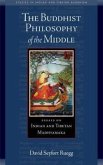The Lotus Sutra--one of the most popular Buddhist classics--is here accessibly introduced by one of its most eminent scholars. "Soon after entering university in December of 1943, I was sent to the front as a student soldier. I wondered if I were allowed to bring but a single book on the trip, possibly to my death, which would I want to bring. It was the Lotus Sutra" -- from the author's Preface. Having developed a lifelong appreciation of the Lotus Sutra -- even carrying a dog-eared copy with him through service in World War II -- Yoshiro Tamura sought to author an introduction to this beloved work of Buddhist literature. Tamura wanted it to be different than other basic explorations of the text; his introduction would be plain-spoken, relevant and sensitive to modern concerns, and well-informed by contemporary scholarship. He succeeded marvelously with Introduction to the Lotus Sutra, which Gene Reeves -- Tamura's student and translator of the popular English edition of The Lotus Sutra -- translates and introduces in English for the first time here. Tackling issues of authenticity in the so-called "words of Buddha," the influence of culture and history on the development of the Lotus Sutra, and the sutra's role in Japanese life, Introduction to the Lotus Sutra grounds this ancient work of literature in the real, workaday world, revealing its continued appeal across the ages.
Hinweis: Dieser Artikel kann nur an eine deutsche Lieferadresse ausgeliefert werden.
Hinweis: Dieser Artikel kann nur an eine deutsche Lieferadresse ausgeliefert werden.








